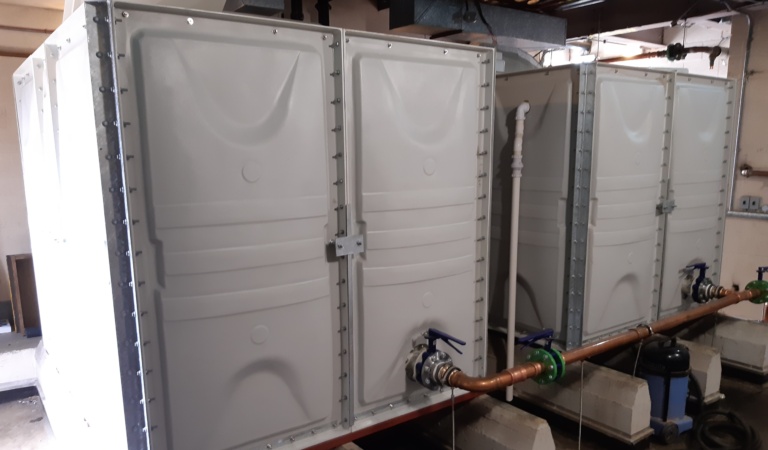 8th November 2022
8th November 2022How Long Do Plastic Water Tanks Last?
There’s use for water tanks in many different circumstances, whether it’s domestic, commercial, or industrial. You might be looking for a below-ground water tank or a rainwater harvesting system.
But whatever your reason, how long a water tank will run efficiently is one of the most important considerations to make. Especially before you purchase it.
Before choosing a tank, you should try to keep in mind that all tanks show be made of WRAS-approved polymer if they are to be used for human consumption. Tanks for this use are referred to as potable water tanks.
The endurance of a water tank is primarily influenced by certain factors: the materials used to make it, the location of the tank, and the purpose for which you intend to use it. This article will focus specifically on plastic water tanks.
Tank Material
Typically, tanks are built of either metal or plastic. Water tanks made of plastic are usually less expensive and require less upkeep than those made of metal.
Non-biodegradable plastic water tanks are often made of UV-stabilised polymer to avoid cracking or UV breakdown. And since these tanks are not biodegradable, they shouldn’t degrade over time. Instead, specialised waste disposal and recycling businesses can recycle these polymer tanks when they’re no longer being used.
If you get a high quality polymer plastic tank model, overall, it should last at least 10 years as a minimum. And if it’s well maintained, cleaned, and treated correctly, it can even last for up to 20 years.
Location of the Tank
Another aspect of the durability of your tank is where it is placed.
For instance, rust may be quite a big problem if your tank is made of steel and is located near the sea. Saltwater and wind can severely damage the material over time as rust begins to set in because of a mix of sodium, oxidation, and moisture.
As well as geographical position, you should also think about where it is physically positioned. Water tanks can be damaged by standing water so they should be on solid surfaces.
For plastic water tanks, long periods of time in direct sunlight can further shorten the lifespan. Especially in arid regions. Overexposure in the sunlight can damage the UV protection treatment that the tank has.
Purpose of Your Tank
Water tanks are used for several purposes, but the general rule is that the cleaner the water, the longer the tank survives. Because a metal tank, as example, loaded with salt water is obviously heavily susceptible to corrosion damage than a tank filled with freshwater.
Metal tanks often need lining before they are safe to use for drinking water. However, the coating is not always required if your water tank is constructed of polymer plastic. This is because they’re composed of a substance that is safe for potable water and there will be no intrusions from oxidised metals.
Prolonging the Lifespan of Your Plastic Water Tank
Regularly maintaining and proper, efficient cleaning are the surest ways to ensure that your tank remains durable.
Protecting it from extreme weather, repairing damages quickly, and taking all protective measures are some of the best things you can do for your tank.
Our tank lining systems here at Cold Water Storage are perfect for that. Not only have our products been approved by the Water Regulations Advisory Scheme (WRAS) but they are specifically designed for potable and drinking water tanks. Protection against corrosion, bacteria growth, and UVA/UVB is a given with our Polyurethane coating.
Our Plastic Tank
Cold Water Storage supplies and installs Glass Reinforced Plastic (GRP) water tanks to numerous organisations from various industries.
The highest manufacturing standards are used to create the WRAS-approved GRP tanks. They have tough sectional glass reinforced plastic panels that have been given the go-ahead to store potable water.
No matter which GRP service a client chooses – installation, repair, or full tank replacement – our professional staff will oversee the process from beginning to end.
So if your GRP tank is no longer fit for purpose, or it’s damaged, or if it’s no longer complying with HSE regulations, we’ll help you. You can get in touch with us by phoning 01943 872 311 or sending an email to info@coldwaterstorage.co.uk.
Visit this page to view more of our services or download a brochure here! (It’s FREE!)